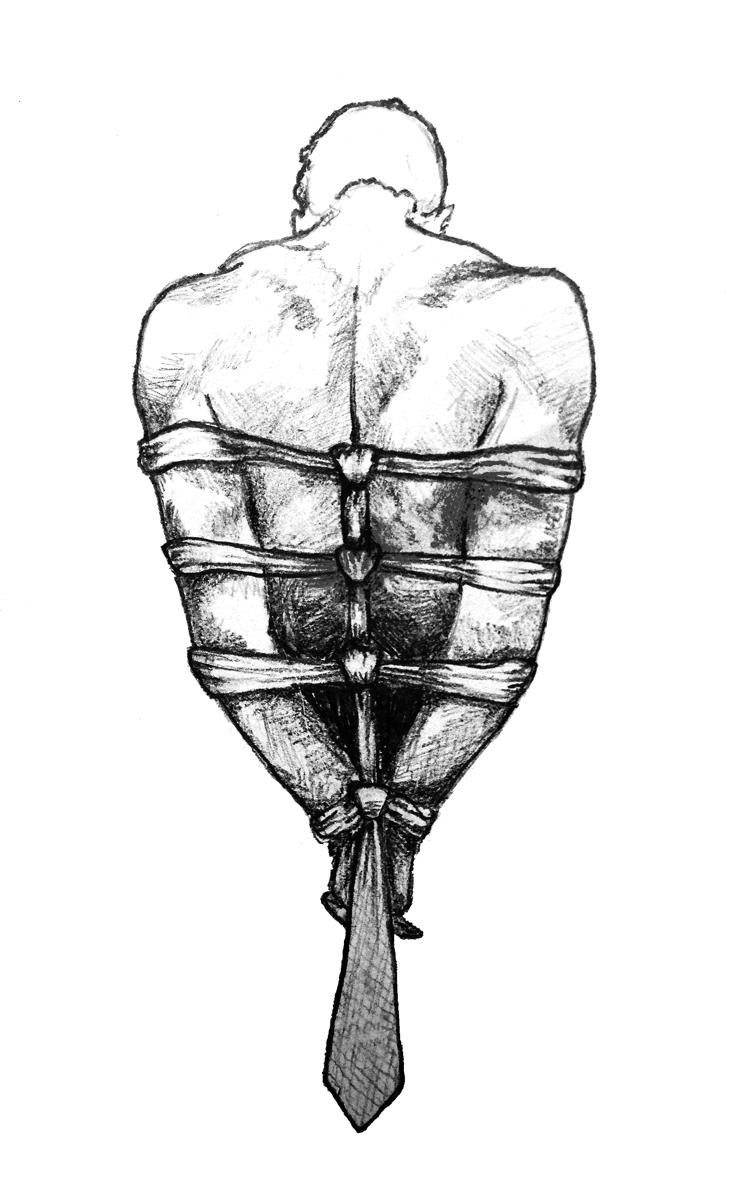Unless you have been living under a rock for the past couple of years, you have probably heard of a little literary phenomenon called “Fifty Shades of Grey.” Mostly known for its erotic sex scenes involving bondage, discipline, sadism and masochism (BDSM), the book was first relegated to late-night bedroom reading among dissatisfied housewives. Yet the novel, which started off as Twilight fan fiction, set ablaze the cultural consciousness, soon becoming a worldwide hit despite its horrid writing and dubious sexual politics.
So, it became an over-hyped movie filled with explicit depictions of violent sex.
Now I must first start off with a warning: I have never read the book, I am not a woman and I am no expert in gender politics or sexual psychology. But after watching the movie, I was left with one singular question — did the general public miss the point?
For the uninitiated, “Fifty Shades” follows the incredibly average, naive and adorable Anastasia Steele, who, after conducting an interview for her college paper, begins a relationship with the young, steely billionaire Christian Grey. Due to his keen sense for detail and striking confidence, the telecommunications magnate fascinates Ana, while Christian hungers for the innate innocence of Ana. They soon begin a sexual tryst and quasi-relationship, despite Christian’s constant emotional coldness, which hides a dark secret that has created shockwaves in his “singular” sexual proclivities. Ana, knowing no better, digs deeper and deeper into his soul, revealing a past she is wholly ill-equipped to handle.
The audience soon learns that Christian was abused by his mother’s friend, becoming her submissive in a BDSM relationship that began from age 15 to 21. Though clearly scarred by the ordeal, he never spoke about the relationship, and has in turn adopted his abuser’s forms of pleasure. As Christian puts it in an early foretelling scene, “exercising control in all things.”
It would be impossible to talk about the deeper themes of this story without a frank conversation about sexuality. Sex, in its proper form, is meant to bind a couple together in body and soul, crafting a depth of intimacy that no other physical act can conjure. Everything comes into the bedroom — insecurities, fantasies and chemistry — in a way that should energize and satisfy both individuals. This is why a “friends with benefits” partnership quickly deteriorates — those pesky emotions. But, that is what Christian aims to do. He crafts an agreement — contract and all — that stipulates the ways in which he and Ana can interact. Of course, it is all one overtly constructed way in keeping a woman at arm’s length.
Though she reluctantly consents to the agreement, Ana desires true intimacy. Her physical pleasure needs to be matched by emotional openness — something Christian refuses to provide. She cries when she witnesses her mother and her husband enjoying each other’s company. Normalcy seems like a long-lost fantasy.
How can anyone view this story as an erotic dream? Stalked, controlled and eventually abused, Ana should serve as a cautionary tale for women everywhere. Christian’s broken and depraved soul teeters between sexual hunger and emotional pain, yearning to reconcile the demons battling inside him. As a victim of prolonged sexual abuse, Christian’s mind has been rewired in order to cope. In turn, the victim has become the abuser, perpetuating the pain to women he comes across, hidden behind the veil of nondisclosure agreements and locked playrooms.
When Ana finally grows sick of the games, she implores experiencing the ultimate form of empathy — “show me.” Show me the pinnacle of damage you experienced. Give me your scars. And he does. The movie climaxes with brutalization, shaking Ana out of her consent as the tears start to flow. Enough is enough. This is depraved. This is unnatural. Christian’s problems run through his veins, and he desperately needs professional help and healing.
I hurt for Christian and guys like him. In reality, Christian represents an extreme of many men hiding behind a mask of pain and shame, unable to commit and settling for wrong-headed pleasures to numb it all. Conversely, many women, like Ana, give themselves away in an effort to please. I am not sure if the audience, who clapped and swooned for the on-screen couple, experienced what I felt. But in my view, “Fifty Shades of Grey” is one of the most tragic romances I have ever witnessed.







